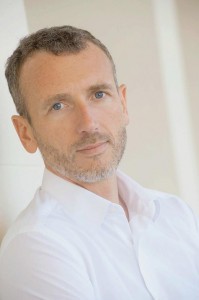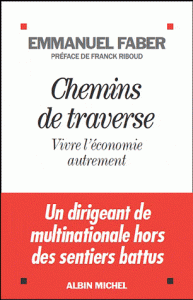I was asked today to think about the social responsibility of business. Here are a few thoughts…
“The social responsibility of business is to increase its profits“, writes the Nobel Prize in Economics Milton Friedman. “Money can remain the means of business but not its end”, claims on the contrary the Nobel Peace Prize and creator of microcredits Muhammad Yunus. Business, to me, is meant to improve the people’s lives and have an impact towards a better world. I might be French, dear Milton, but I’m not “speaking prose” here… and unlike Molière’s Bourgeois Gentilhomme, I’m not 70 and still study Business Fundamentals so please leave me my hopes to re-define a little bit with modesty on Yunus’ line what Business is… with a yoghurt. 🙂
I attended one month ago a conference by Emmanuel Faber, executive vice-president of Danone. Here is the story he told us about: in March 2006, Danone and Grameen, the worldwide known multinational company on the one hand and the people’s bank created by Yunus on the other hand; worked together to create Grameen Danone Foods Ltd (GDFL), a Social Business in Bangladesh. Professor Yunus said that it was “a unique opportunity to create a business totally dedicated to soc ial objectives, a company whose ambition [would not be] to generate profits for its investors, but committed to serve the interests of people without incurring losses.” What GDFL actually does is not difficult to understand: it produces and supplies within the local market a fortified yoghurt named Shokti + answering the nutritional needs (Iron, Vitamin A, Calcium, Iodine and Zinc) of many malnourished Bangladeshi children while creating jobs and investing profits into reducing the price of the yoghurt or increasing the wage of the local producers of milk, etc. I recommend you the following video in which Muhammad Yunus shortly explains the project:
ial objectives, a company whose ambition [would not be] to generate profits for its investors, but committed to serve the interests of people without incurring losses.” What GDFL actually does is not difficult to understand: it produces and supplies within the local market a fortified yoghurt named Shokti + answering the nutritional needs (Iron, Vitamin A, Calcium, Iodine and Zinc) of many malnourished Bangladeshi children while creating jobs and investing profits into reducing the price of the yoghurt or increasing the wage of the local producers of milk, etc. I recommend you the following video in which Muhammad Yunus shortly explains the project:
If you liked it and if you are as enthusiastic about this as I am, then you can also watch a video explaining the Shokti + impact on health here.
What I personally like with the concept of Social Business is how it reconciles two worlds too often legitimately opposed: the economic sphere and the social one. GDFL remains a Business but its goal is not to maximize the shareholder value anymore. Franck Riboud, CEO of Danone, once said that he was “utterly convinced that our future depends on our ability to explore and invent new businesses and new types of enterprise”. This is my answer to Milton Friedman: business does not have to mean increasing profits and can tend towards a real social responsibility. It can be redefined in a human-focused way. I would also like to point out to Friedman that Danone’s shareholders understood this and 98% of them accepted Danone’s offer to give 10% of their dividends for a new fund called danone.communities meant to support social business ventures. Bridges have to be built between these worlds: managers can’t forget about their social impact as leaders of a corporation and shareholders can be looking for something more than mere financial profit.
When I left Emmanuel Faber’s conference that day, I felt empowered and I was happier to come to Sauder as an exchange student. I also read his book called Chemins de Traverse. Here are few of my takeaways from this great experience:
– Ambition is honorable if it serves something that transcends it; that surpasses it.
– Follow people, not organizations: people make things happening!
– Go preferably from the Economic and Technical world to the Social one to be where you are not expected to make a difference: there you will have an impact.
Yours. V.


Pingback: 17/11/2012 – Copyleft | Vincent Perraud's Blog